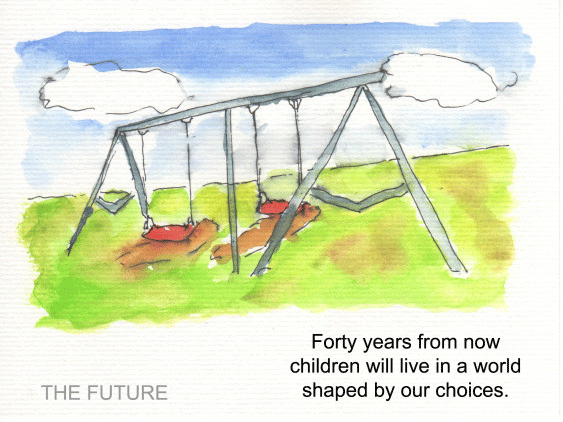Send Us Your Haiku -Listener Letters
Air Date: Week of April 11, 2014

(Bigstockphoto.com)
We dip into the Living on Earth mailbag to hear from you our listeners, and ask you to send us your environmental haiku poems in honor of Earth Day this month.
Transcript
CURWOOD: Time now, for comments from you.
Eleanor Sommer is glad Living on Earth is covering the issue of plastics that can leach into our food. But she says that replacing plastic sippy cups with stainless steel doesn't necessarily make a drink safe.
"We buy milk, juices, tea, even organic yogurt in PLASTIC containers," she says, "which are purported to be “safe.” Does that mean they do not contain estrogenic properties? Do they leach other chemicals into our food while waiting for purchasers on store shelves?"
Good questions.

(Gregory Johnson)
And Jerry McGuire writes from Fort Mill, South Carolina.
"Thanks to Living on Earth, thousands of us are watching a bald eagle family on the nest by means of a live camera feed from Berry College in Georgia. My family has watched it daily seeing the hatching, feeding, growing, and even the adults fighting off invaders, and now waiting for the fledging."
The Intergovernmental Panel on Climate Change set April 13 as the release date for its latest report with proposals for action governments should take to address the worst effects of climate change. We can expect heated rhetoric on the subject in coming weeks, and as a kind of antidote we suggest poetry.
Last week we spoke with NOAA oceanographer Gregory Johnson who interpreted part of the notoriously dense UN climate change report as haiku.
JOHNSON:
Forty years from now
children will live in a world
shaped by our choices.
CURWOOD: Johnson reminded us of the rules of haiku - which, as you probably know is a formal style of Japanese poetry that dates back to the 17th century.
JOHNSON: The strict rules are a syllable count of 5-7-5 in the three lines. They’re supposed to be a reference for the season, and the Japanese have specific words for these I think. And they’re also supposed to have what the Japanese call a cutting word, sort of a transition.
CURWOOD: Well, to honor Earth Day coming up on April 22, we want you, our listeners, to tap your own creative muse and send us your haiku. The topic can be anything Earth day inspired that inspires you, from spring flowers to climate worries to eco heroes.
Send us your Earth Day haikus to comments@loe.org. Once again, comments @ LOE dot org. Or you can use our postal address it's PO Box 990007, Boston, Massachusetts, 02199. Or read your haiku aloud on our listener line at 800-218-9988. That’s 800-218-9988. If you use the phone be sure to record your name and a number where we can call you back.
Links
Living on Earth wants to hear from you!
Living on Earth
62 Calef Highway, Suite 212
Lee, NH 03861
Telephone: 617-287-4121
E-mail: comments@loe.org
Newsletter [Click here]
Donate to Living on Earth!
Living on Earth is an independent media program and relies entirely on contributions from listeners and institutions supporting public service. Please donate now to preserve an independent environmental voice.
NewsletterLiving on Earth offers a weekly delivery of the show's rundown to your mailbox. Sign up for our newsletter today!
 Sailors For The Sea: Be the change you want to sea.
Sailors For The Sea: Be the change you want to sea.
 The Grantham Foundation for the Protection of the Environment: Committed to protecting and improving the health of the global environment.
The Grantham Foundation for the Protection of the Environment: Committed to protecting and improving the health of the global environment.
 Contribute to Living on Earth and receive, as our gift to you, an archival print of one of Mark Seth Lender's extraordinary wildlife photographs. Follow the link to see Mark's current collection of photographs.
Contribute to Living on Earth and receive, as our gift to you, an archival print of one of Mark Seth Lender's extraordinary wildlife photographs. Follow the link to see Mark's current collection of photographs.
 Buy a signed copy of Mark Seth Lender's book Smeagull the Seagull & support Living on Earth
Buy a signed copy of Mark Seth Lender's book Smeagull the Seagull & support Living on Earth

